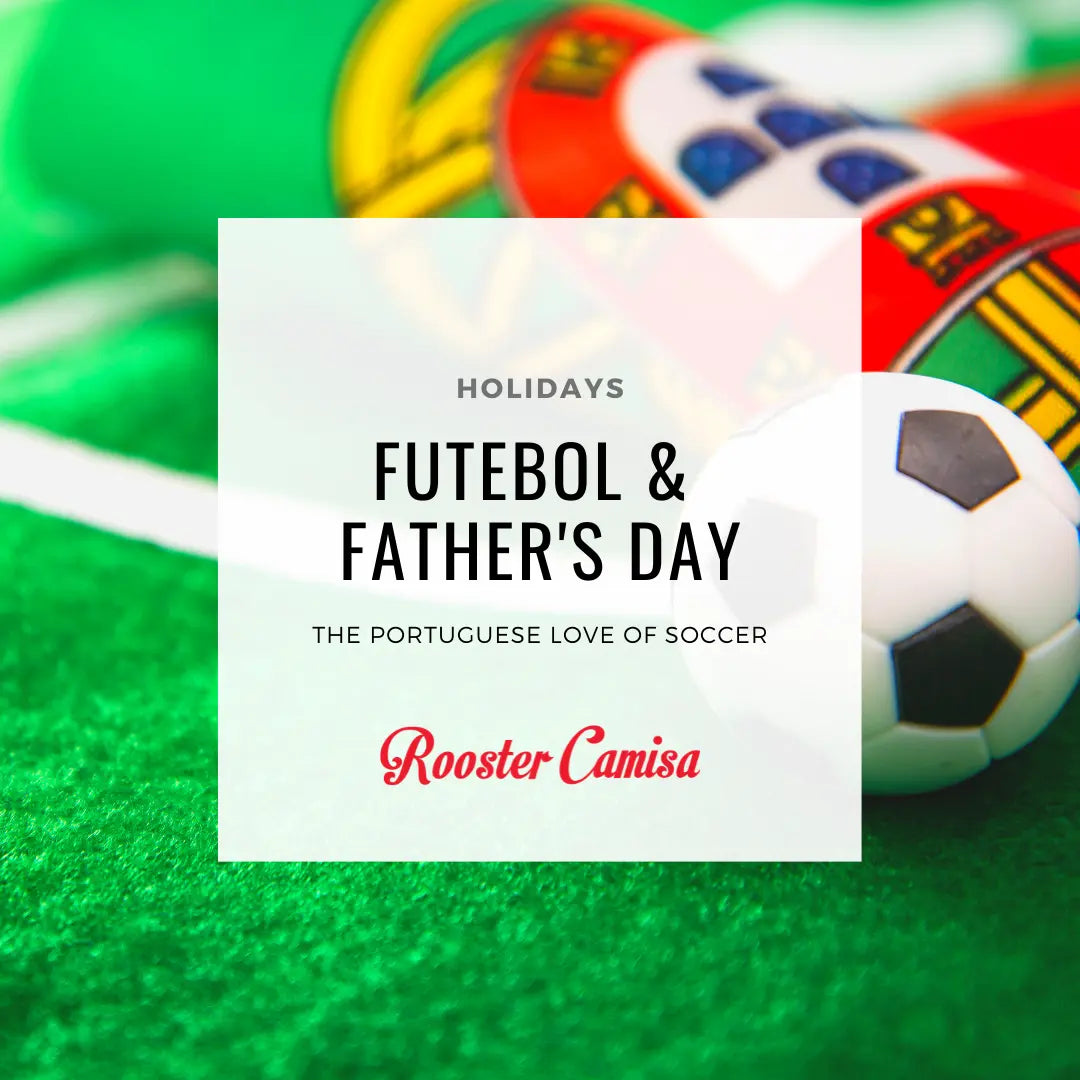
Futebol (soccer), known throughout the world as the “beautiful game,” is a sport that—for most of the time—brings out the best in people. No nation in the world values this game more than Portugal.
Whether a person is a Portuguese immigrant, or several generations removed from the point of immigration, it’s safe to say that the love of this game is a factor in many of our childhoods, especially where it connects with our fathers. So, what better way to celebrate our fathers than to talk about their love of the most popular game in Portugal--futebol.
But in a culture that faces life with a great passion for the things that capture its heart, the discussion of Portuguese futebol isn’t a straightforward one. After all, Portugal has more than one beloved futebol club, so competition amongst the fans is fierce. The main futebol clubs are proudly referred to as Os Três Grandes (The Big Three). These three talented teams are S.L. Benfica, Sporting CP, and FC Porto. All three teams incite the same amount of loyalty among the Portuguese fan base, which means any discussion of which team is the best team can’t happen. After all, this is a piece designed to celebrate all our fathers. Calling out a team as the superior one just wouldn’t be right.
In general, futebol has a long history in Portugal, dating back to 1875. It was originally introduced in Lisbon, Funchal, Porto, and Coimbra by English merchants and Portuguese students arriving back from their studies in England.This trend led to the establishment of local clubs dedicated to the practicing of futebol. Like with any emerging sport, it was initially played in neighborhoods but soon became popular in city-wide regional tournaments and then grew to be played across the country. As the sport gained popularity, so did the need to establish which club was Portugal’s best. In the early part of the 20th century, Campeonato de Portugal (now Taça de Portugal) was established. But being first doesn’t guarantee first place forever, and such is the case here. In 1934, what is now Portugal’s top domestic league, Primeira Liga, was established and is the home to the very internationally successful Os Três Grandes! Os Três Grandes have numerous combined trophies, and the measured success of these three teams is something that makes all their fans very proud.
Futebol has been a hugely popular sport in Portugal for many decades. Between the three teams, the combined total number of fans attending games per season is approximately 2,600,000. Of course, no discussion about Portugal’s futebol pride can happen without naming some of the individual sources for that pride.
The list is longer than this but the six that come to mind are Christiano Ronaldo, Luis Figo, Fernado Couto, Pepe, Nani and Joâo Muoutinho. Please know there were many more greats on the list, but these are the ones that earned the highest number of caps to date. In the world of futebol, earning caps is a huge deal because it means that a player has taken part, for their team, in international games. The world governing body for futebol, Fédération Internationale de Football Association (FIFA), only recognizes certain international games as ones where a player can earn a cap. When a player is selected to appear for their national team, it is considered a huge honor. This implies that the player is one of the country’s best futebol players and deemed talented enough to represent their entire country. But representation alone does not mean a cap is earned. The player then joins a team comprised of other countries’ greats and must take place in the game by being on the field to earn the cap. It is only then that they receive a cap to mark their participation in the game. So now that the cap earning criteria has been explained, what about the explanation for the term cap?

Photo Credit to Henrique Maced
Historians who specialize in the study of futebol say that the idea began around 1886 when all players appearing for England were awarded an embroidered cap. From that point on, all players who played an international game for England received a cap to mark their appearance. As the game’s popularity spread throughout the world, this practice spread with it. While the term cap is now metaphorical, physical caps are often awarded for a player’s special milestones earnings. As you can imagine, the amount of pride for fans of that player’s team is incredible. Regardless of whether they love FC Porto, S.L. Benfica, or Sporting CP, Portuguese fathers are usually passionate futebol fans and set aside their team loyalty when it’s time to support any Portuguese player in the international games.
These games provide an opportunity for Portuguese futebol fans to gather because of their national loyalty and love of the sport. Many a great memory is taken away from these gatherings. Building those memories becomes part of a family tradition around the game of futebol. Portuguese fathers, often along with the rest of the family, enjoy telling stories about the year that their player gave them a reason to feel great about Portugal’s place in the world of futebol. Many of us grew up hearing the tone of incredible pride in our fathers’ voices when listening to them talk about their futebol team. And today, these stories continue to be shared by those of us who use them to pay tribute to our fathers. Portuguese fathers and fathers worldwide deserve to be celebrated, and it’s an honor to do it with a discussion about something that has always been dear to the Portuguese father’s heart--futebol.
Shop Rooster Camisa.com for Benfica, Porto and Sporting Galos.

